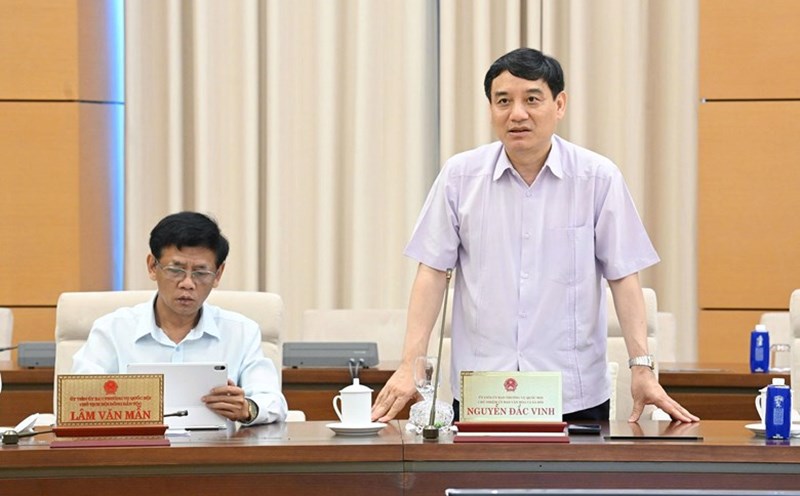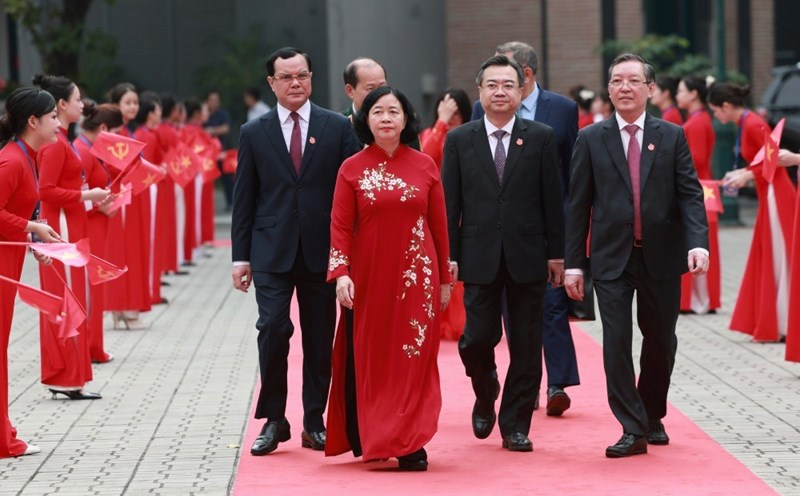According to some organizations, this is a "too strict" level, which can have a "very big impact and change almost the entire current situation of the Vietnamese automobile industry".
According to research by the Vietnam Automobile Manufacturers Association (VAMA), with a target of 4.83 liters/100km by 2030, most traditional gasoline models (ICE) and even some hybrid cars (electric gasoline models) on the Vietnamese market will not reach this limit. Specifically, 96% of traditional gasoline cars and 14% of current hybrid cars will not meet the standards.
Discussing this issue, Mr. Le Hong Viet, Deputy Director of the Road Mechanical Vehicle Emissions Testing Center (Vietnam Register) said: "First of all, it is necessary to affirm that the draft TCVN on fuel consumption is currently in the process of being consulted, not issued and is only of an incentive nature, so it does not create mandatory obligations for businesses and people at this time.
In addition, the scope of application of the Standard is only adjusted for newly manufactured, assembled and imported vehicles, not applicable to vehicles that have been and are in circulation.
The CAFC 4.83 liters/100 km does not apply directly to each car model or enterprise, but is only an average national target; each enterprise will have its own target based on the product structure and the average volume of the convoy of vehicles produced or imported by it".
According to Mr. Viet, during the drafting process, the Drafting Committee has regularly consulted with associations and enterprises that produce and import cars to ensure feasibility.
In document No. 082101/2025/VAMA dated August 21, 2025, the VAMA Association officially expressed its support for the goal of an average TTNL of 4.83 liters/100 km by 2035, considering this a practical contribution to the national emission reduction target.
The Drafting Committee is continuing to research and assess the detailed impact based on market data and domestic vehicle development trends, especially the increase in the proportion of electric vehicles, to have a reasonable application roadmap, ensuring both the implementation of international commitments and the practical conditions of Vietnamese enterprises and the market - Mr. Viet affirmed.
The Vietnam Register said that we are currently in the stage of applying energy labeling and level 5 emissions testing for cars with 09 seats or less manufactured and assembled from separate components, completely new or imported without use.
The application of energy labels and level 5 emissions testing for cars with 09 seats or less, including cars manufactured and assembled from separate components or newly imported without use, has prompted domestic car manufacturing, assembling and importing enterprises to bring modern and advanced technology to Vietnam.
This contributes to reducing environmental pollution and improving fuel efficiency for cars in Vietnam.
However, the current Circulars guiding energy labeling and QCVN 109:2024/BGTVT do not stipulate CO2 emissions nor fuel consumption limits for cars. Therefore, the application of these legal documents has not been highly effective in reducing carbon emissions in the transport sector.
The Vietnam Register added that the application of fuel consumption standards forces automobile manufacturing, assembling and importing enterprises to invest in new technologies such as electric hybrid engines, electric motors, direct fuel injection systems, unmanned gearboxes, and more optimal aerodynamic designs.
Thereby, Vietnamese consumers will benefit from using safer vehicles, more fuel-efficient vehicles, and less emissions.
According to the assessment, fuel-efficient vehicles will help reduce daily operating costs for users. For example: A reduction of 0.5 - 1.0 liters/100 km can save millions of VND per year for each vehicle.
For transportation, logistics, taxi, and technology vehicles, reducing fuel costs will help increase profits, reduce service costs, and increase competitiveness.
In the long term, when the vehicle structure gradually switches to hybrid/EV, fuel costs will decrease even more sharply, reducing the pressure on gasoline imports.
It can be seen that the fuel consumption regulation will create competitive advantages for electric vehicles, hybrid electric vehicles, and vehicles using alternative fuels that have low consumption levels.
Thanks to that, the energy conversion process in transportation is accelerated in accordance with the roadmap of Decision 876/QD-TTg: by 2040, stop producing/importing gasoline vehicles, by 2050 100% of vehicles using clean energy will be achieved. The electric vehicle and hybrid vehicle market in Vietnam will be more vibrant, promoting preferential policies and developing charging and maintenance infrastructure.









